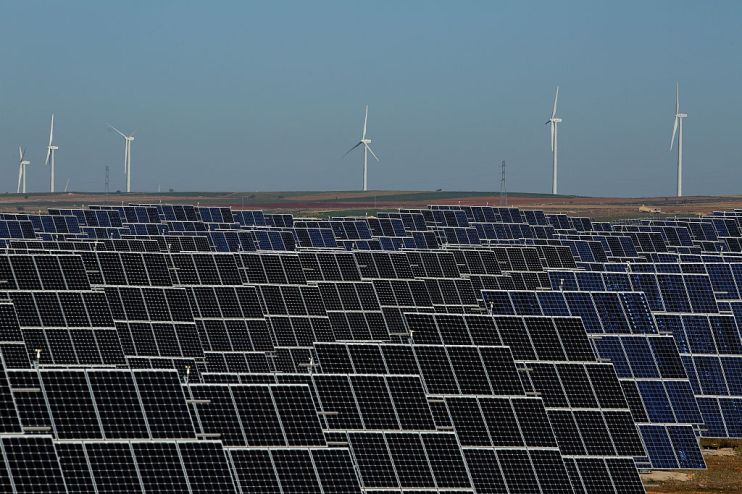Solar clampdown would repeat mistakes of onshore wind ban, energy boss warns

The government risks repeating the mistakes which led to a collapse of investment in onshore wind developments through its reported clampdown on farmland solar projects, a renewables boss has warned.
Phil Thompson, chief executive of Balance Power, told City A.M. that plans to factor food security into the approval process could deter clean energy firms from investing in planning applications, and become a wider threat to domestic projects.
This was particularly significant in the context of the vast subsidies on offer through the US Inflation Reduction Act which threaten to lure projects Stateside.
“We do have to be very careful that we are not left behind and one of the key things with all of that is where do we put the projects,” he said.
The energy boss argued that farmland is appealing to solar projects due to the relatively cheap price of land, compared to brownfield sites where landowners value allotments “pretty strongly” because they think they can green-light more lucrative developments such as housing.
He explained: “The landowner’s position and the landowner’s perception of their land is very important for a solar project. The landowner needs to understand, or needs to believe, they can’t really do that much with this site. So, if there is an option for them to do something else with it, it’s not going to be a solar farm.”
His comments come amid growing industry expectations – first covered in The Observer – that the government is planning to redouble efforts to clamp down on solar panel installations across British farmland.
The government is expected to give planning officials the power to reject new developments – including renewable projects – on the basis of food security in Prime Minister Rishi Sunak’s latest watering down of green commitments.
This means solar farms could be blocked by local authorities if officials believe a prospective project could “put food security at risk”, with ministers believing concerns over food supplies should be on par with energy security ambitions in the UK’s planning policy framework.
The government has denied a decision has been made, and is still considering thousands of responses to its latest consultation on planning laws.
Balance Power owns 100MW of grid scale solar projects and 50MW of planned behind-the-metre developments which will power directly into businesses.
Thompson considered the news “concerning” with the firm rarely announcing projects until it secures planning permission.
He urged the government to be “very careful” and not “shepherd this into an effective ban on solar farms”, where renewable developers are deterred by planning red tape.
Such a situation would be comparable to onshore wind developments, where local residents were given more scope to reject sites – which led to just two onshore wind turbines being installed in England last year, fewer than war-torn Ukraine, with generation levels barely expanding over the past seven years.
The government is targeting 70GW of solar generation by the middle of the next decade as part of its energy security strategy, with roughly 15GW currently connected to the grid.
However, Downing Street hopes to reach this ambitious targets through making it easier for businesses to install solar panels on rooftops to deter countryside projects.
At the Conservative Party Conference last week, Energy Security and Net Zero secretary Claire Coutinho said: “We’ll cut through the planning red tape that limits the amount of solar businesses can currently install, protecting the countryside, boosting renewables and, according to industry, saving businesses up to £3bn per year.”
When approached for comment over any potential clampdown on farmland solar, a government spokesperson said: “This is inaccurate – no decision has been made, we received thousands of replies to our consultation and are considering these before responding.”